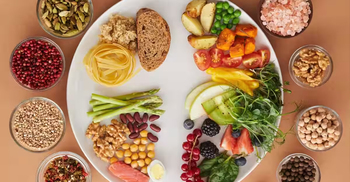How elderly citizens in India are finding love

Madhav Damle runs a home for senior citizens in Wai, a town in India's western state of Maharashtra. Years ago, his job made him face an uncomfortable truth - many of the residents were experiencing loneliness and stress, and had poor relations with their families and friends. At least one of the seniors under his care tried to commit suicide by consuming sleeping pills. His adult children expressed little interest in taking care of him, said Damle.
Looking for ways to ease his clients' isolation, Damle had an idea - he tried matching them into couples with a perspective of marriage. This worked especially well for clients in their mid to late 60s. But he then faced an unexpected obstacle, as some of the clients' children disliked their elderly relatives marrying, due to inheritance issues.
"This is why, I thought live-in relationships might be a good solution for the couples. We conducted a survey among some seniors in [the Maharashtra city of] Pune, and about 70% of them were open to the idea of a live-in partner," he said.
'Time and love' as top priorities
India's society is remarkably conservative when it comes to marriage and relationships. The divorce rate in India is about 1% - among the lowest in the world. At the same time, there is a social stigma against remarrying and against unmarried couples living together.
The issue has even made it to the Indian Supreme Court in 2006, with the judges finding that a "live-in relationship between two consenting adults of heterogenic sex does not amount to any offense, even though it may be perceived as immoral."
Damle officially started his matchmaking agency in 2012, which later came to be known as "Happy Seniors." He is managing and sharing profiles, while also organizing meet-ups and trips for his clients.
Nitin Savgave and Saroj Ghatani found each other through Damle. The two are now married.
"My only requirement from a partner was their time and love. I got that," Ghatani told DW. She added that her family did not approve of her new marriage, but this did not deter her and Savgave. "We enjoy each others' company and spend most of our time together," Ghatani said.
Savgave's family was more supportive. "She is vegetarian, whereas I eat meat frequently," he says. "But we have adapted to each other and enjoy the companionship."
Minefield of dating apps
Matchmaking is a time-honored craft in India. But finding a partner online is growing increasingly common, and even some older Indians are turning to modern dating apps to find love.
Tina (name changed), 64, decided to do just that after walking out of an abusive marriage.
"I got married at 18 and became a mum by 20, I never got the chance to be myself. So after I split, I had all this freedom and no one to dictate my life," she told DW.
After a while, she tried using dating apps in search of companionship. "I found a lot of men were married, and looking to cheat on their wives. There were also some younger men looking for an older woman. I got fed up with it," she admitted.
But her frustration eventually paid off. She found a partner through an app, and - after chatting for about five years - the two finally met.
"We're both definitely not looking for marriage. Just companionship," she said.
Her children know about her relationship. Her partner also has one child and "the acceptance has not been forthcoming," Tina said.
Most of India's seniors lonely
But breaking taboos is likely to grow increasingly common as both India's society and its population shift. Today, about 5.7% of Indian senior citizens live alone without the support of family or friends, according to a survey by India's PAN Healthcare. It was conducted among 10,000 elderly population across 10 cities in India, and also found that a majority of responders feel lonely at least some of the time.
And, with India now the most populous country in the word, the number of its seniors is climbing - the UN Population Fund said it will touch 192 million by 2030, and, by 2050, every fifth Indian will be an elderly person, defined by the UN as aged 60 or older.
Source: DW







